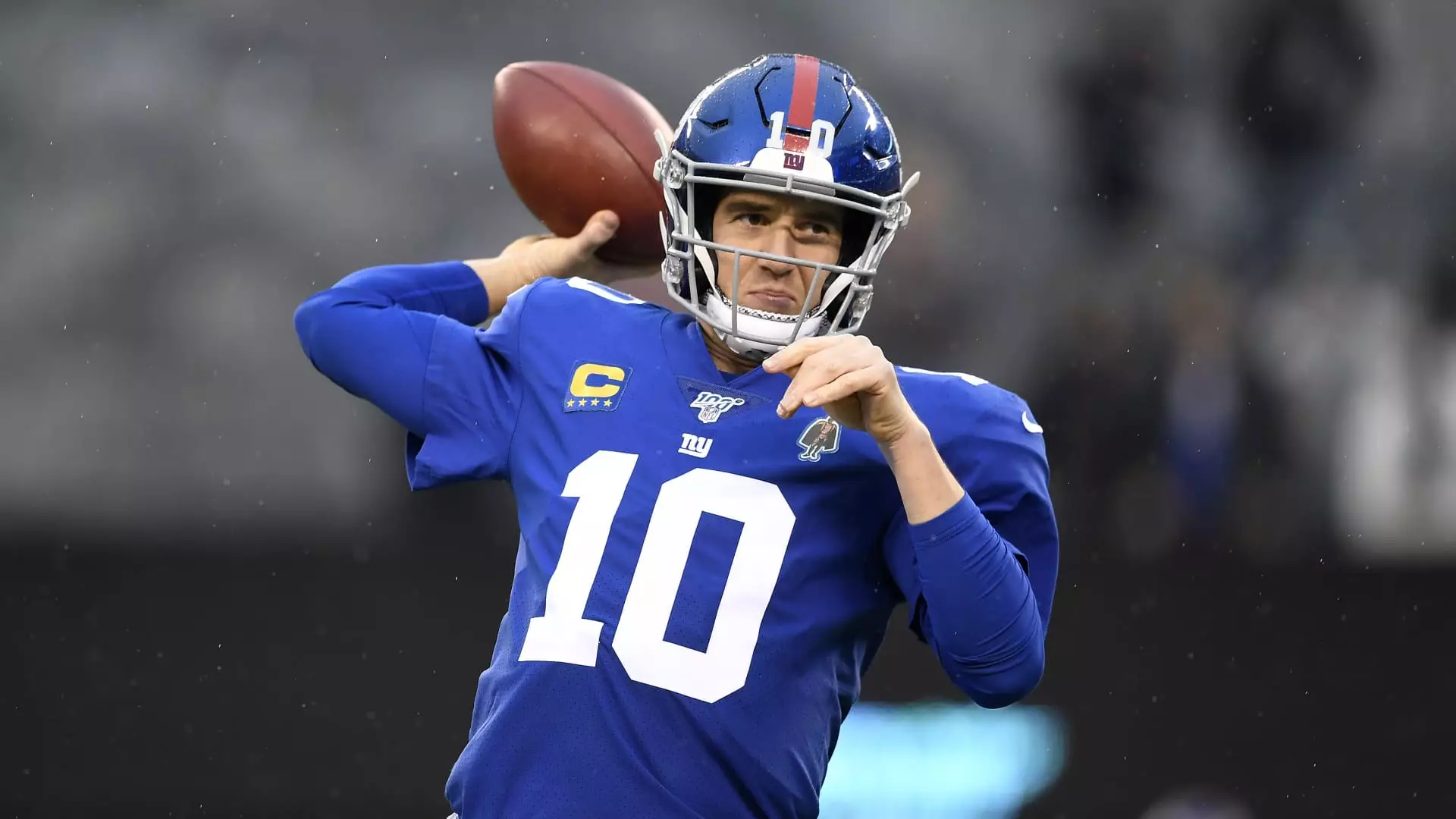Eli Manning’s recent disinterest in joining the lucrative world of NFL ownership sheds light on a troubling reality: access to professional team ownership is increasingly out of reach for the average wealthy individual, let alone former players or fans. Manning’s candid revelation that he was “priced out” of buying a stake in the Giants underscores a broader pattern of skyrocketing franchise valuations, driven largely by corporate interests, private equity, and inflated market expectations. The idea that a 1% stake in an NFL team could cost billions exposes the stark disparity between the perception of sports ownership as a attainable investment for the passionate and the harsh economic reality that it currently embodies.
This escalating valuation trend isn’t accidental. It emerges from a perfect storm: a media-driven sports economy fueled by billions in television rights, lucrative merchandise sales, and an insatiable appetite for entertainment. As a result, teams like the Giants, Eagles, and 49ers are now valued beyond what many could have imagined just a decade ago. This surge places ownership well beyond the reach of most individuals—foreshadowing a future where sports franchises become tokens of extreme wealth rather than communal or fan-driven institutions. Manning’s experience signals a growing divide, illustrating how the American Dream of owning a piece of the game is increasingly a myth for all but the ultra-rich.
The Myth of Fair Market Valuations and the Power Dynamic
Manning’s assertion that the Giants are worth $10 billion confronts a complex, opaque valuation process often driven by insider dealings and speculative investments rather than transparent market forces. These valuations, while impressive, become increasingly detached from the average person’s financial reality. For former athletes like Manning who grew up idolizing the game, the pursuit of ownership seems less a possibility and more an invitation to participate in an elite sphere that privileges generational wealth and connections.
The increasing involvement of private equity firms and billionaires in team ownership exacerbates this divide. The recent NFL move to allow private equity stakes of up to 10% essentially transforms sports teams from community assets into high-stakes financial commodities. This shift raises questions about whether the primary beneficiaries are the communities, the players, or the investors—clearly, it’s the latter. Manning’s decision not to pursue a stake mirrors a growing acknowledgment that, despite his wealth and fame, the financial odds are stacked firmly against the common player-turned-investor. The NFL’s ownership model is veering away from a sport rooted in community and identity towards a playground of wealth accumulation.
The Ethical Implications and Power Imbalances in Modern Sports
Beyond the economics, Manning’s withdrawal hints at underlying ethical concerns about the direction professional sports are heading. Is the sport’s core—its fans, its traditions, its community roots—being sacrificed at the altar of profit? The fact that Manning, a beloved former player, finds himself priced out of ownership suggests a growing divide not only in economic terms but also in influence and control over the sport’s future.
At its core, sports have historically been a communal experience, a shared passion binding fans, players, and local communities. When ownership becomes predominantly a play for private wealth, the identity and accessibility of the sport are compromised. The rise of private equity and billionaires stepping into the ownership arena risks further alienating the very communities that built these leagues. Manning’s stance—acknowledging the financial barriers and potential conflicts of interest—could be an unintentional critique of an industry increasingly driven by opaque financial motives rather than the love of the game.
By choosing not to participate directly, Manning may symbolize a subtle but significant resistance to the billionaire-driven evolution of sports. It reflects a reality where the sporting universe no longer represents the collective passion of fans but is increasingly a domain for the ultra-wealthy to grow their portfolios. This shift isn’t just about economics; it’s a moral question about who truly deserves to control, influence, and benefit from the sports that serve as modern-day civic rituals. In essence, Manning’s decision underscores the urgent need for re-evaluating the power structures in professional sports—bringing the focus back to community, fairness, and the true spirit of competition.

